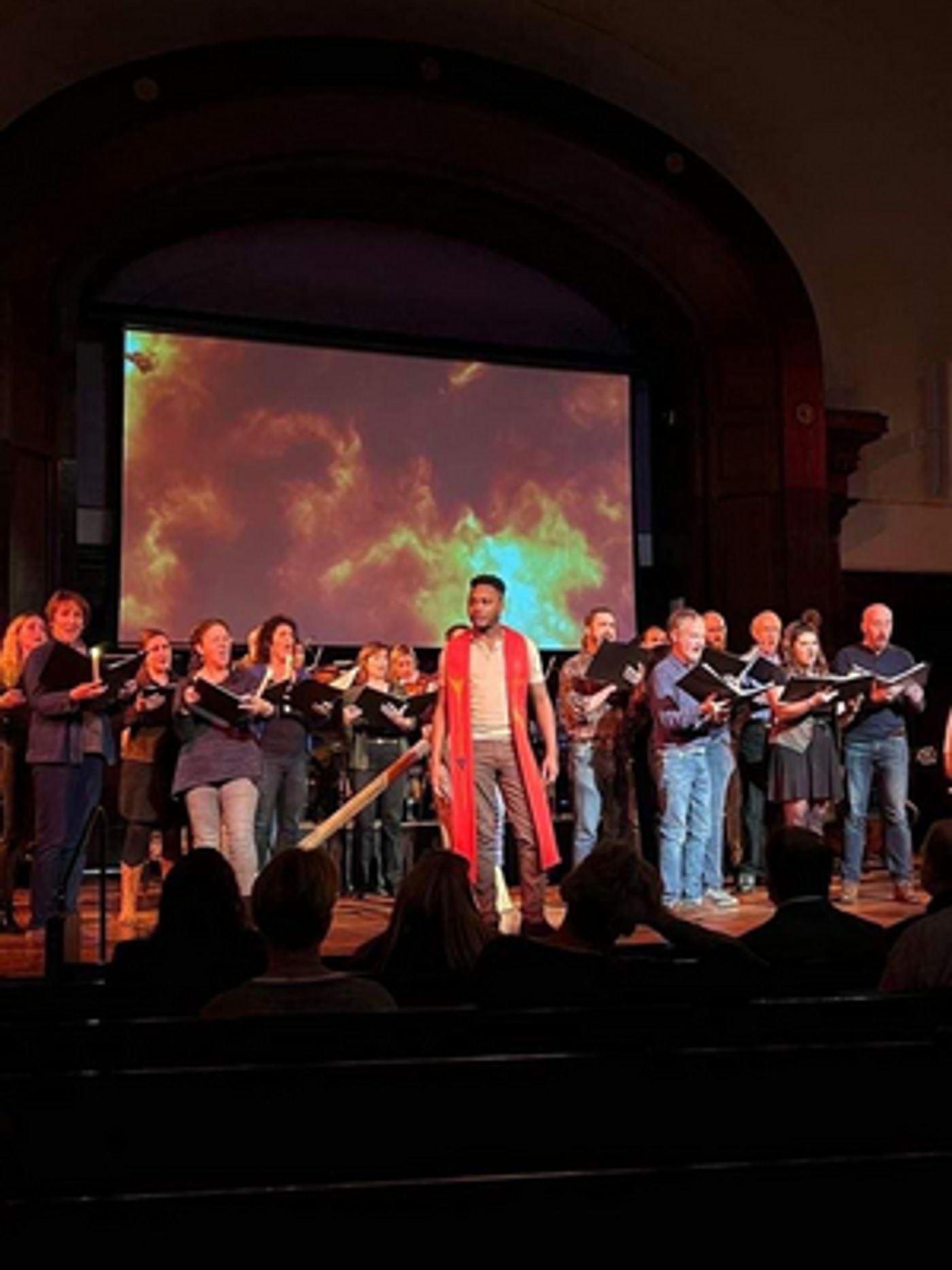Review: The Dessoff Choirs Premiere CONSIDERING MATTHEW SHEPARD
New York premiere performance received enthusiastic audience.

New York's own Dessoff Choirs brought the New York premiere of Craig Hella Johnson's oratorio, CONSIDERING Matthew Shepard, to the city at the auditorium of the New York Society for Ethical Culture on November 6, 2021.
Malcolm J. Merriweather conducted the choir, orchestra, and featured soloists in a nearly two hour performance that was received by the audience with great enthusiasm, a glorious start of this year's season.
The entire work is composed by Johnson with words primarily from OCTOBER MOURNING by Lesléa Newman, but with additions ranging from the Bible to Shepard's own journals. Along with the solo and choral passages are recitations, both narrative and readings of texts, as well as of correspondence. The inclusion of these, as well as a video display both of photographs and of news clips, gives the work a sense of immediacy even to those who do not recall the national story created by Shepard's murder.
Shepard's part is sung by Matt Cahill, who is a natural musical theatre vocalist and has performed with The American Repertory Theatre. His presence alone is sufficient to occupy the stage, though the stage is frequently shared with, or even dominated by, The Fence - the wooden fence on which Shepard was found after his beating. The Fence is imbued with its own personality and observations, and its part is sung throughout, quite magnificently, by optic baritone Markel Reed. Reed's voice is one to be reckoned with, and that will eventually be suited for NABUCCO.
Johnson describes the work in relation to Bach and to the SAINT MATTHEW PASSION; in fact, he breaks the oratorio into three parts - Prologue, Passion, and Epilogue. No lyric, no news clip, no nerve is left unspared, including incorporating the protests of the infamous Westboro Baptist Church at Shepard's funeral. The audience was buffeted by a storm of emotions, people, and news media, just as many were at the time of the original incident.
The oratorio begins vividly, with the entire chorus setting forth in "Cattle, Horses, Sky and Grass," encompassing the natural attributes of Wyoming and harking back to the creation of a verdant, pleasant world - the one in which Shepard lived until one fateful evening. The Fence soon begins to tell of the later night, in several appearances of its rails supporting Shepard's body, while Shepard himself reminisces of innocence lost - not only his own, but the nation's collective willful ignorance of violence against the LGBT+ community. Yet at no time, let alone in "The Innocence," is anyone singled out for attack or for their complicity in fostering homophobia; this is a cycle of healing, not of rage.
Johnson reaches to all areas of American music in the work - western music, folk music, jazz, and gospel all being included. "Meet Me Here," the song beginning the epilogue, begs for nothing so much as Dolly Parton and a backup gospel choir, while the opening "Cattle, Horses, Sky and Grass," in both lyric and music, has the flavor of a more staid church choir singing Thanksgiving hymns.
The entire oratorio has been recorded previously by Conspirare, with Craig Hella Johnson, and is available through Amazon as well as other outlets.
Photo credit: Michael Herring
Reader Reviews

Videos

